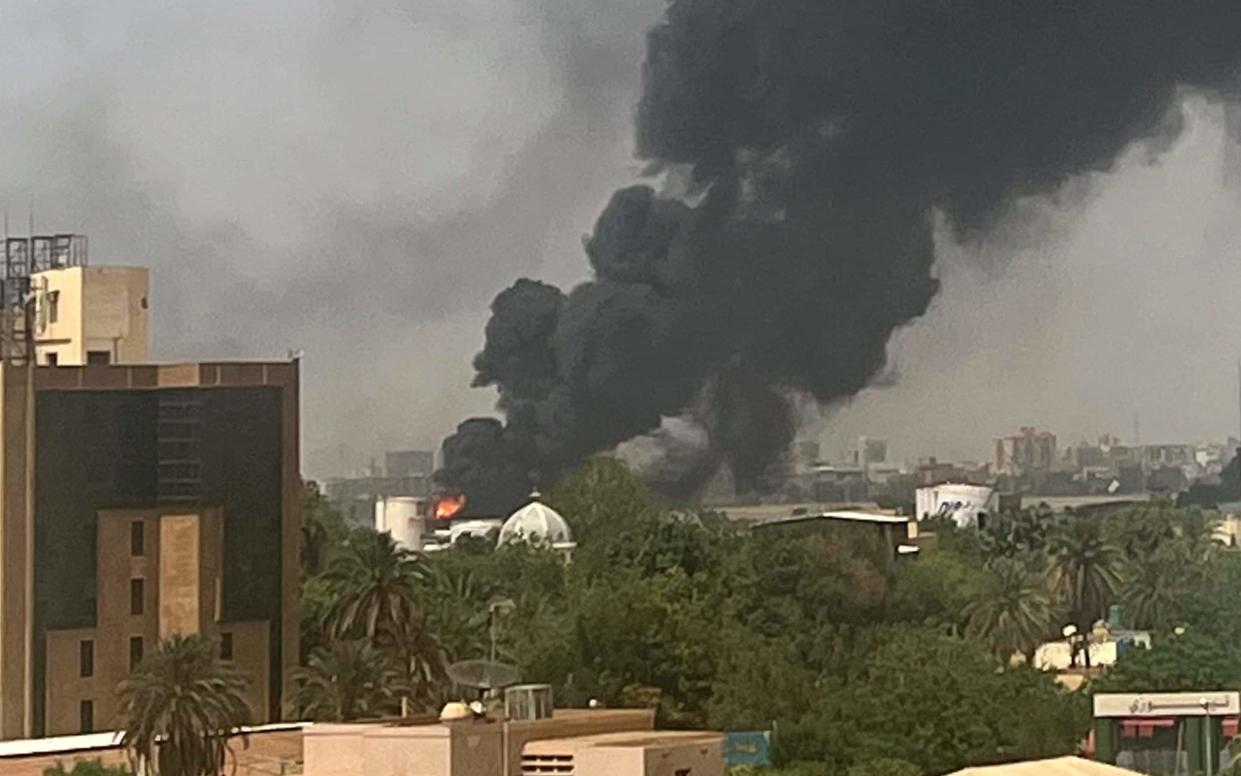Sudan proves that the only thing worse than Western meddling is Western absence

The first step to a solution is to identify the true root of the problem. These days the Sudanese, Libyan, Yemeni, and Syrian peoples are united in blaming the West – not for meddling in their affairs, but for abandoning them to their meddlesome neighbours.
The ongoing fighting in Khartoum has its roots in a relatively peaceful 2019 uprising. This saw the ousting of a brutal dictator, and the installation of a transitional council comprised of lawyers, generals, and academics, with the ostensible goal of guiding the country through elections. Within two years, a military coup was launched with the support of paramilitary actors connected to previous genocidal actions in Darfur. These paramilitary forces are now at war with their former allies in the official military. Sudan was allowed to collapse not because Moscow or Beijing supported the aspiring tyrants, but because core Western allies – the UAE, Egypt and Saudi Arabia – appear to have conflicting entanglements that commit them to backing different sides in the conflict.
This story is repeated around the world, in theatre after theatre. For a generation raised in the fallout of the Iraq war, the idea that American reticence might be to blame for regional instability is new and strange. From Libya, to Syria and now Sudan, over the last decade Washington has failed to issue ultimatums to quell disruptive actors, failed to intervene to restore order, and most crucially it hasn’t its pressured allies to get on the same page.
This is a key feature of our era of Global Enduring Disorder. In this world, post-conflict states tend to remain imploded. When pro-democracy movements manage to oust dictators, they are derailed by coups, civil conflict, and proxy wars, often driven by the poorly disguised meddling of the West’s erstwhile regional allies. Unmask a rogue Sudanese or Libyan warlord, and you may well find the puppet of an Emirati intelligence officer or Egyptian general, rather than a clownish FSB handler. The Russian mercenaries are usually their sidekicks, but they are paid for by others; it is an open secret that the Kremlin can’t afford its own goons.
Disruptive middle powers like Turkey, Russia, Egypt, the UAE and Saudi Arabia seem often to actively seek to disorder their neighbourhoods rather than coherently export their ideologies or increase their trade.
Egypt and the UAE were jointly the main supporters of the rogue Libyan General Khalifa Haftar when he tried to capture Tripoli in 2019, but are now on opposite sides of the fighting in Sudan. Over the last two years, both the Emiratis and the Russians have largely abandoned Haftar. His only reliable supporter is the Egyptian Army, yet for years he has undermined them in Sudan. Last week, the Egyptians caught him red-handed supplying high quality arms to their enemies in Sudan and dispatched the head of their intelligence services to Benghazi to issue an ultimatum. Unsurprisingly, Haftar’s Libyan National Army promised to back down. The Russian Wagner Group is set to pick up the slack out of hopes of prolonging the conflict.
The Enduring Disorder has wholesale replaced the post-Cold War order. During this new era of geopolitics, enemies in one conflict can transactionally support one other in different theatres. Russia and Turkey are on opposite sides in Ukraine, Syria and Libya, but they’re happy to collaborate to derail Western peace initiatives to solve any of these conflicts. Egypt and Turkey have long been the primary backers of opposite sides in Libya, but two weeks ago their foreign ministers met in Ankara to bury the hatchet and propose a destabilising alternative to the UN electoral process.
Our era is defined by unregulated cyberspace, unregulated financial flows, unregulated migration and the inability of major powers to work together. If we examine recent developments in Sudan, Libya, Yemen, South Sudan, and depressingly even Tunisia, we can see that the major factor in these countries’ sorry trajectories is not the absence of courageous civil society actors or a skilled populace, but rather the lack of a unified approach by the West and its regional allies to peace-building and reconstruction. During the Cold War, the West knew how to support its local allies; and our regional partners knew how to step into line.
Those days are long gone.
Jason Pack is author of Libya and the Global Enduring Disorder and Senior Analyst at the Nato Defense College Foundation

